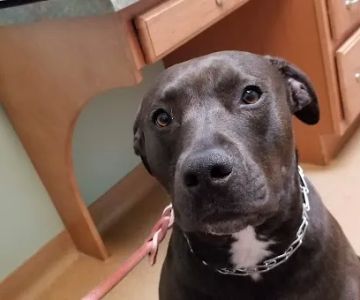- 1-Defining-What-a-Veterinarian-Is
- 2-Core-Duties-and-Responsibilities-of-a-Veterinarian
- 3-The-Path-to-Becoming-a-Veterinarian
- 4-Real-Life-Experiences-from-Veterinarians
- 5-Why-a-Career-in-Veterinary-Medicine-is-Rewarding
1. Defining What a Veterinarian Is
A veterinarian is a medical professional dedicated to the health and well-being of animals. Unlike doctors who treat humans, veterinarians specialize in diagnosing, treating, and preventing illnesses and injuries in a wide variety of animal species—from household pets to farm animals and even wildlife.
Is a veterinarian simply an animal doctor? Yes, but their role extends far beyond that. They act as educators, public health advocates, and sometimes researchers, ensuring animals live healthier lives while supporting ecosystems and food safety.
1.1 The Role of a Veterinarian in Society
Veterinarians are essential in bridging the gap between animal and human health. Their expertise not only improves animal care but also helps prevent zoonotic diseases—those that can transfer from animals to humans—highlighting their vital place in community health.
2. Core Duties and Responsibilities of a Veterinarian
The duties of a veterinarian are broad and challenging. They include:
2.1 Medical Diagnosis and Treatment
Vets examine animals, run diagnostic tests, perform surgeries, prescribe medications, and develop treatment plans tailored to each patient’s needs.
2.2 Preventative Care
Vaccinations, parasite control, nutrition advice, and routine check-ups form the backbone of preventative veterinary care that keeps animals healthy.
2.3 Emergency and Critical Care
Veterinarians often face urgent situations requiring quick decision-making to save lives or reduce suffering.
2.4 Client Education
Educating pet owners or farmers about proper animal care, behavioral issues, and disease prevention is a key part of a vet’s role.
3. The Path to Becoming a Veterinarian
Becoming a veterinarian requires rigorous education and training. It usually involves:
3.1 Undergraduate Studies
Focus on biology, chemistry, and animal science to prepare for veterinary school.
3.2 Veterinary Medical School
A four-year degree that combines classroom learning with practical clinical experience.
3.3 Licensing and Specialization
After graduation, vets must pass licensing exams and may pursue specializations such as surgery, dermatology, or exotic animal care.
4. Real-Life Experiences from Veterinarians
Dr. Emily Thompson, a small animal veterinarian from California, shares her story of helping a severely injured dog recover against the odds. “Every case teaches me patience and hope,” she says. These stories reveal the compassion and dedication inherent in veterinary medicine.
Another example is Dr. Mark Rivera, who volunteers in wildlife rescue, illustrating the diverse environments where veterinarians make an impact.
5. Why a Career in Veterinary Medicine Is Rewarding
Choosing to become a veterinarian means embracing a career filled with challenges and rewards. The joy of seeing a patient recover, the gratitude from pet owners, and the contribution to public health create a fulfilling professional journey.
If you’re inspired by the role of a veterinarian and wish to support animal health with expert products and services, visit ESPLawyers. Their trusted resources and recommendations help you make informed choices for your pets’ well-being, ensuring you provide the best care possible.











